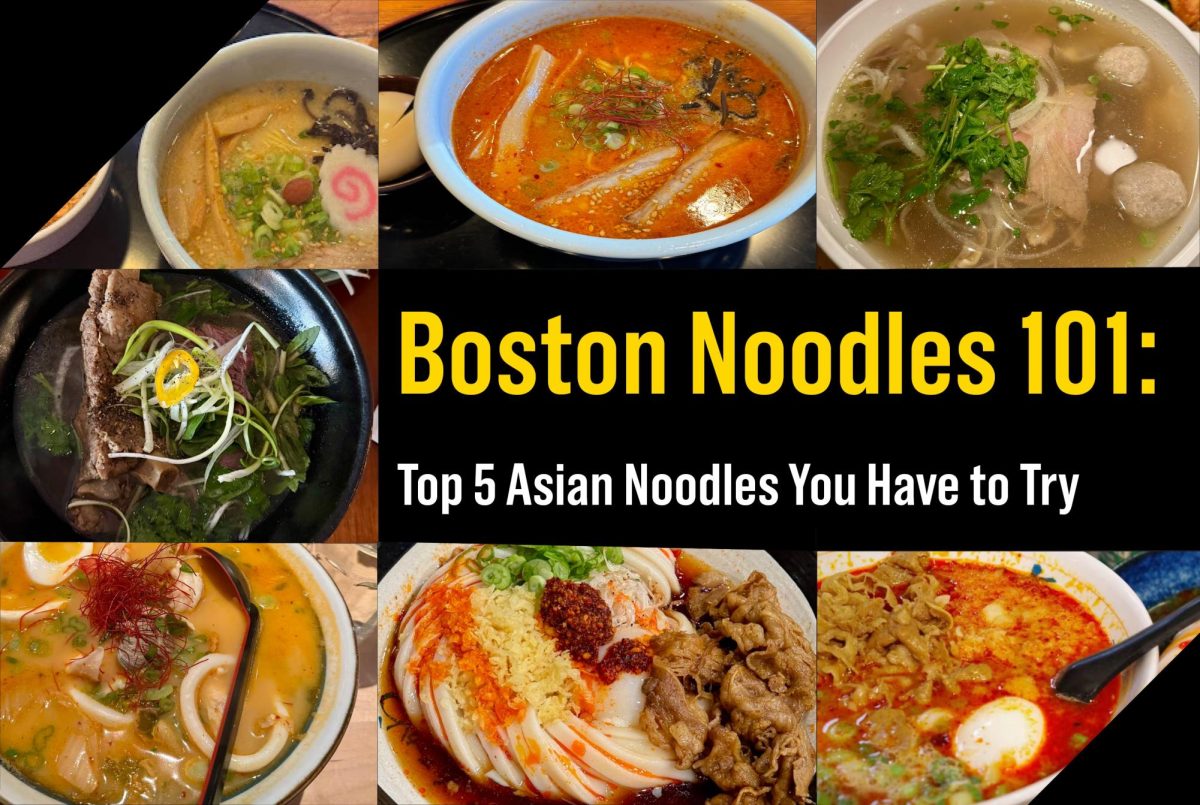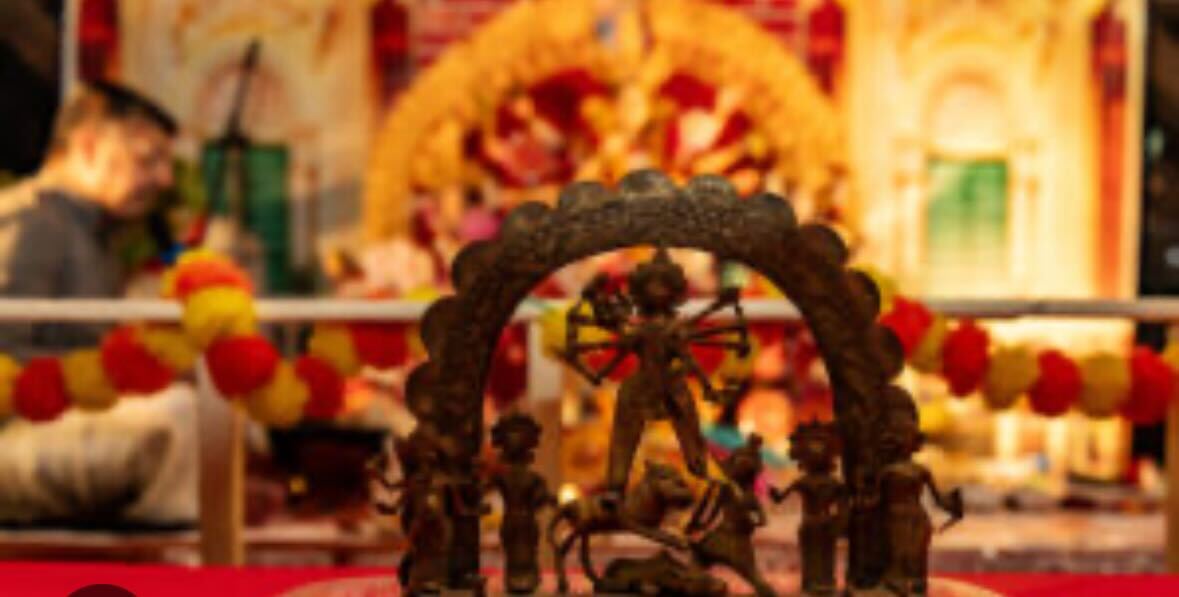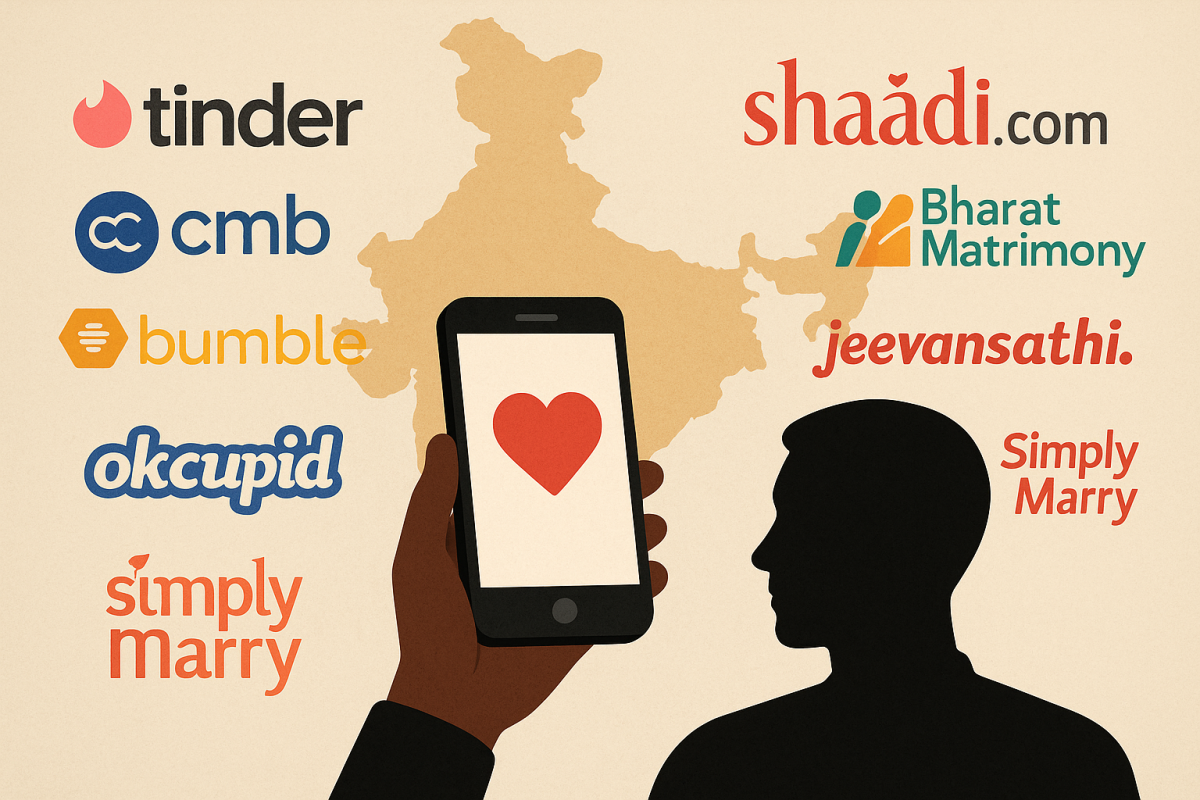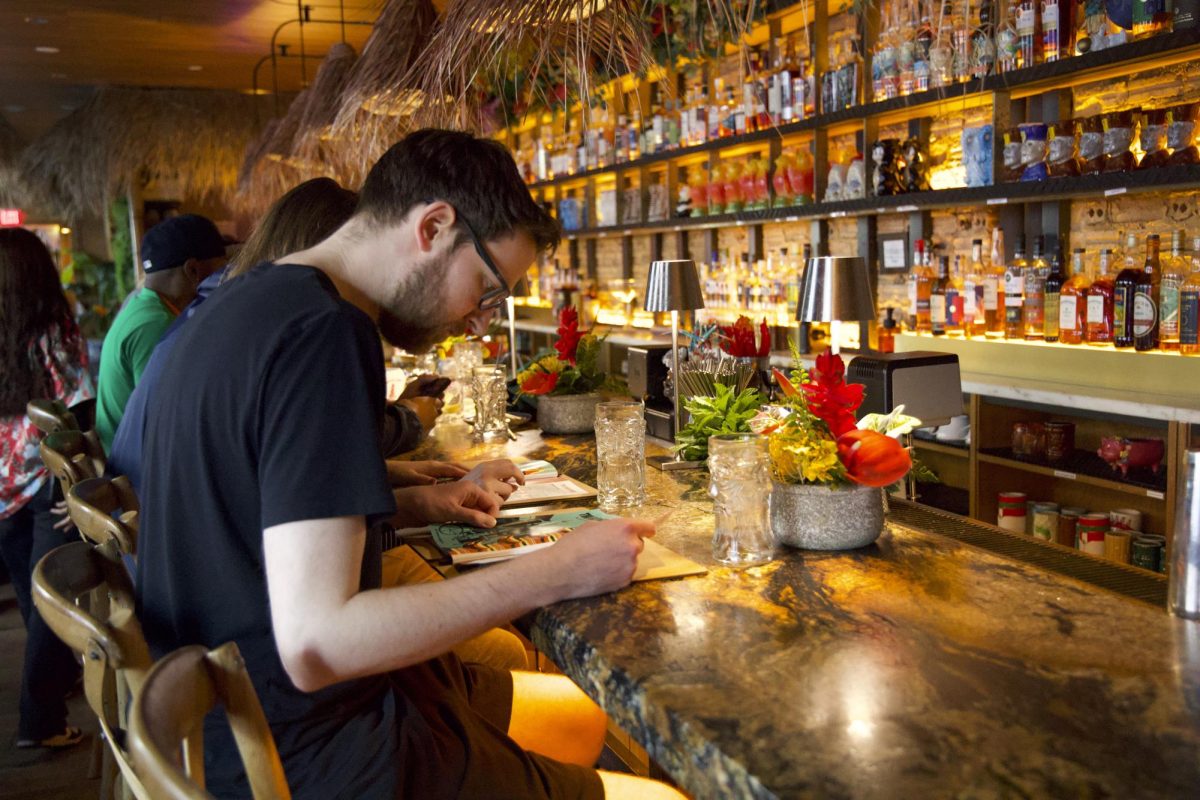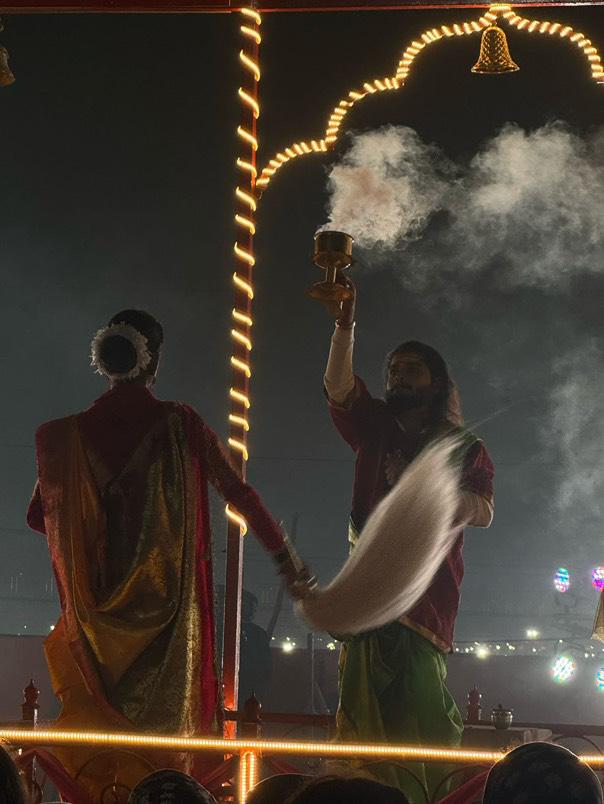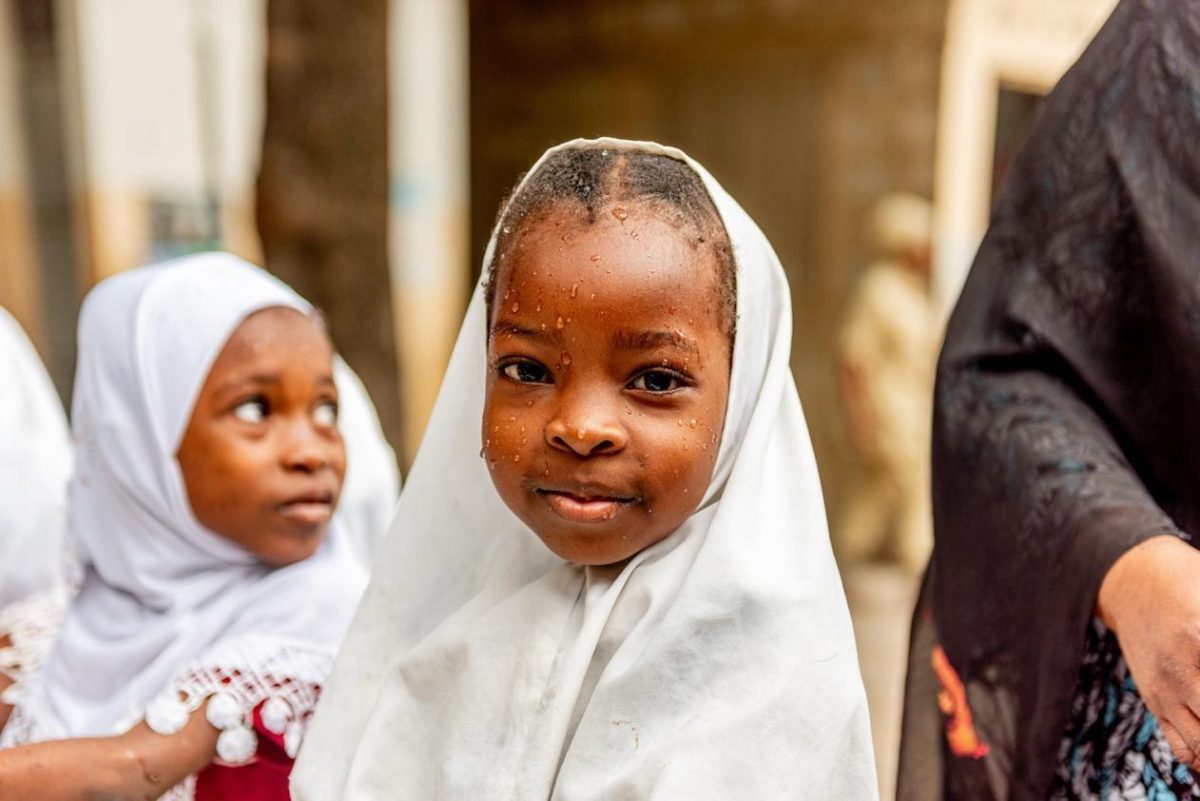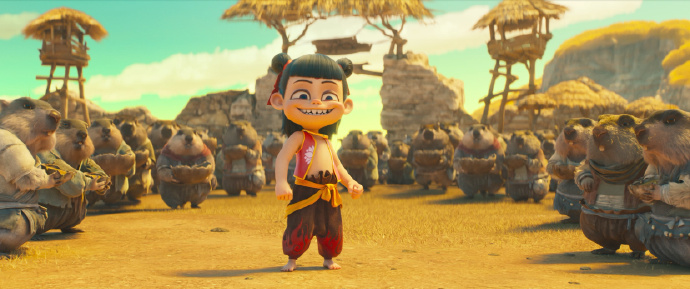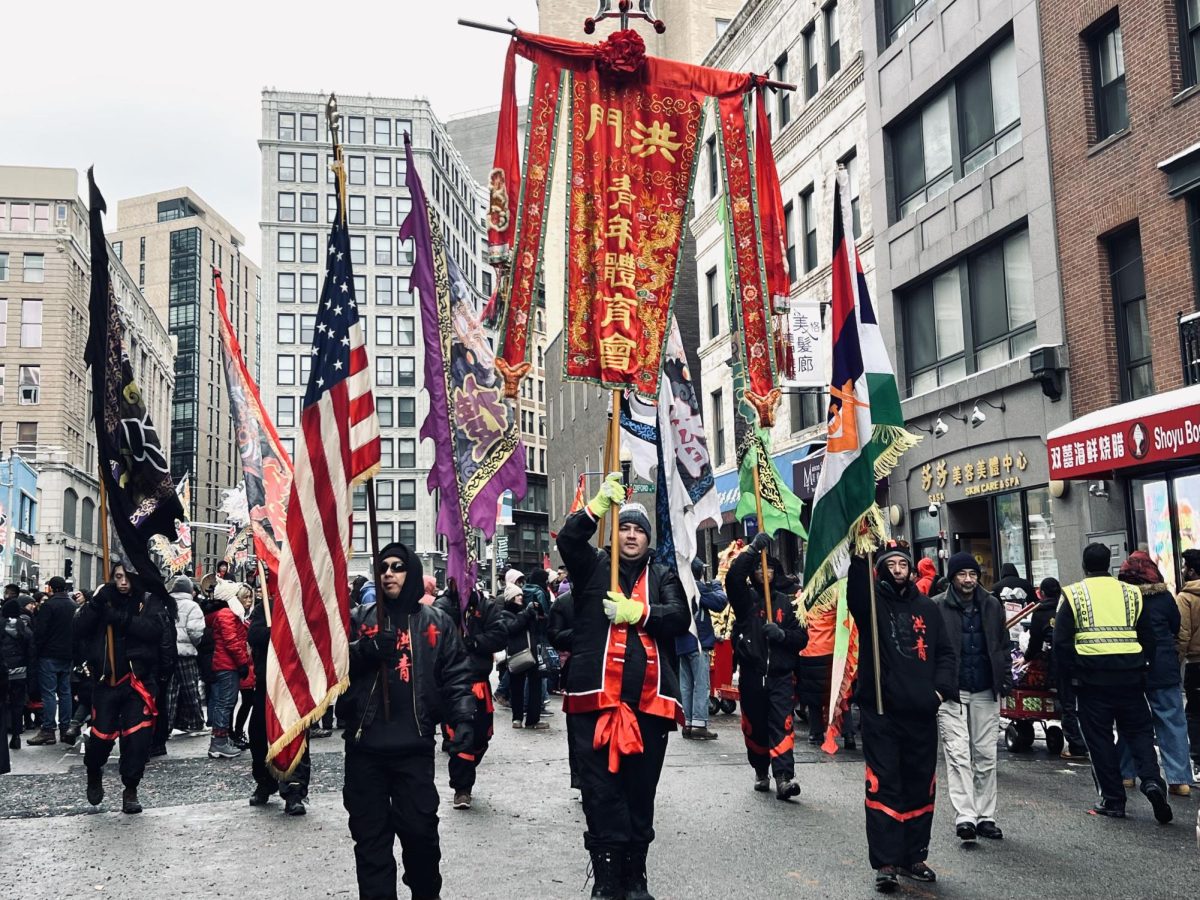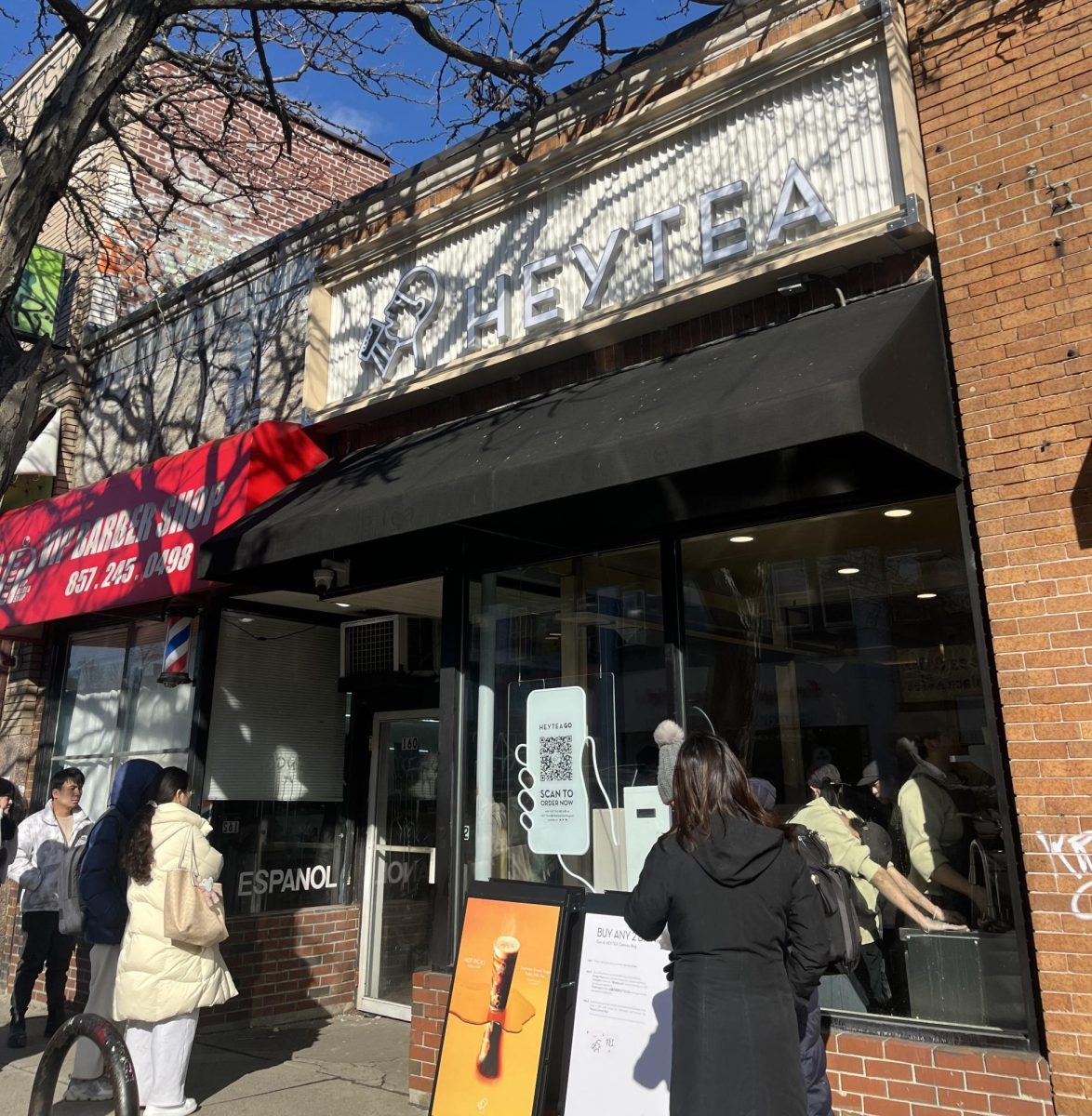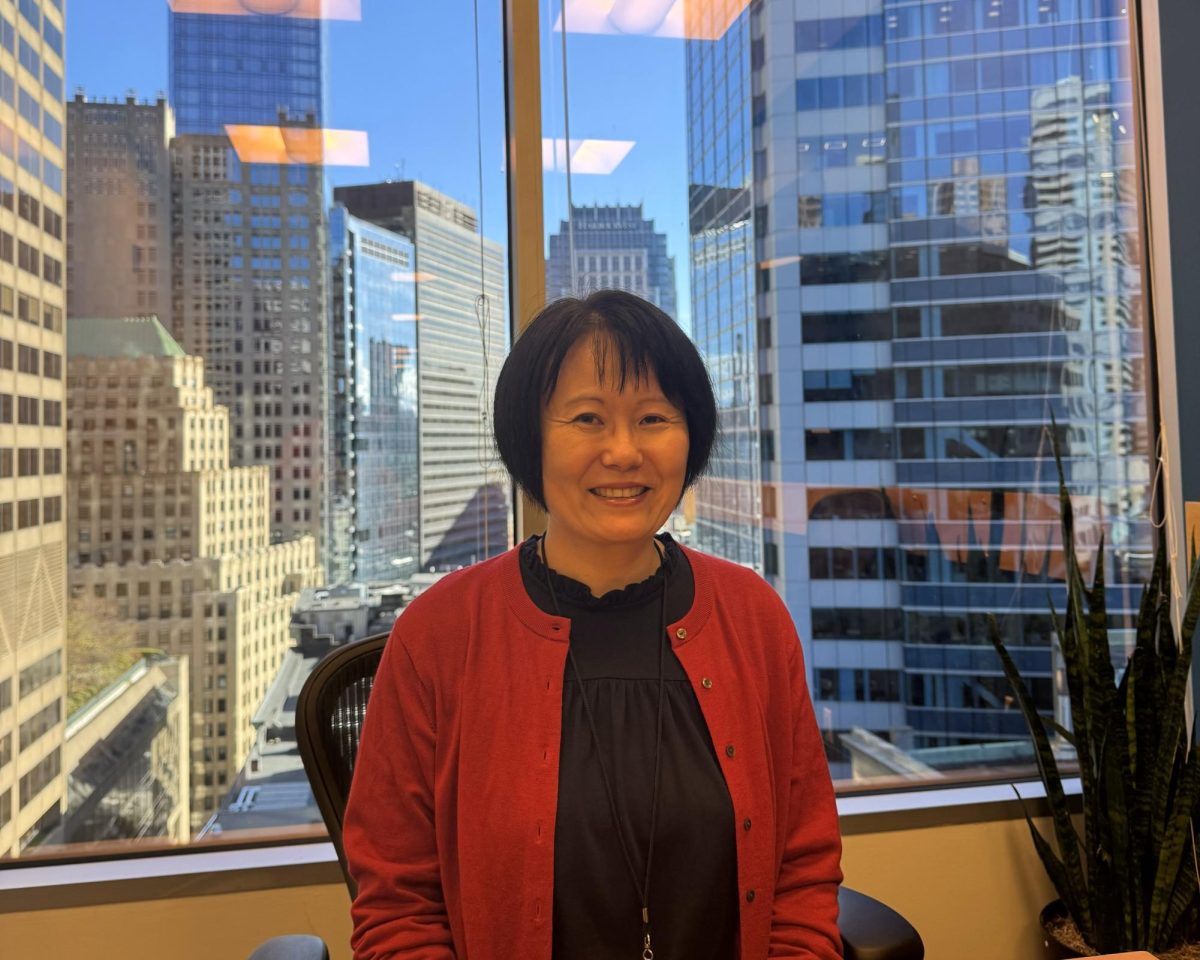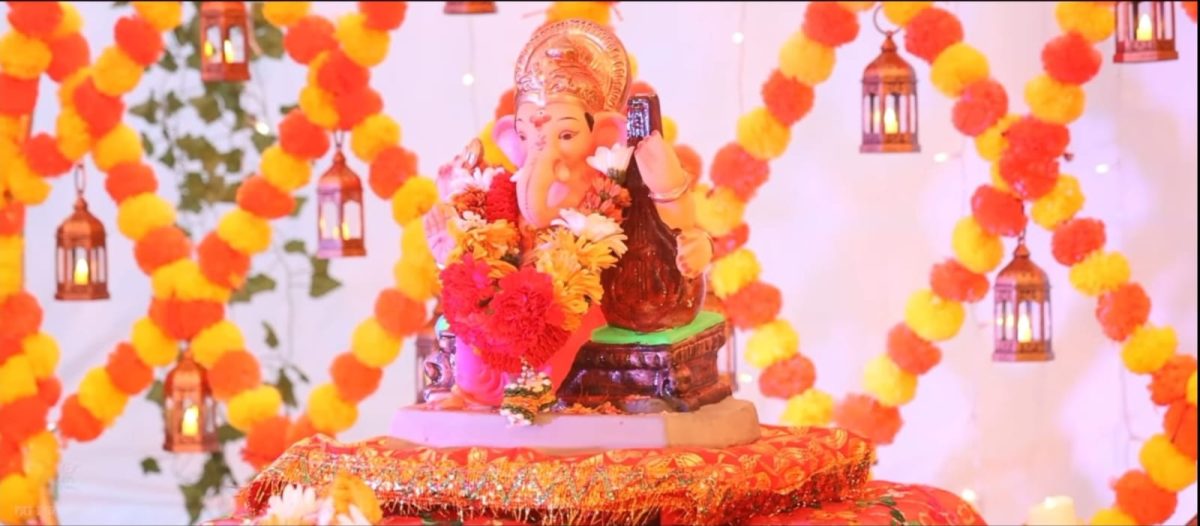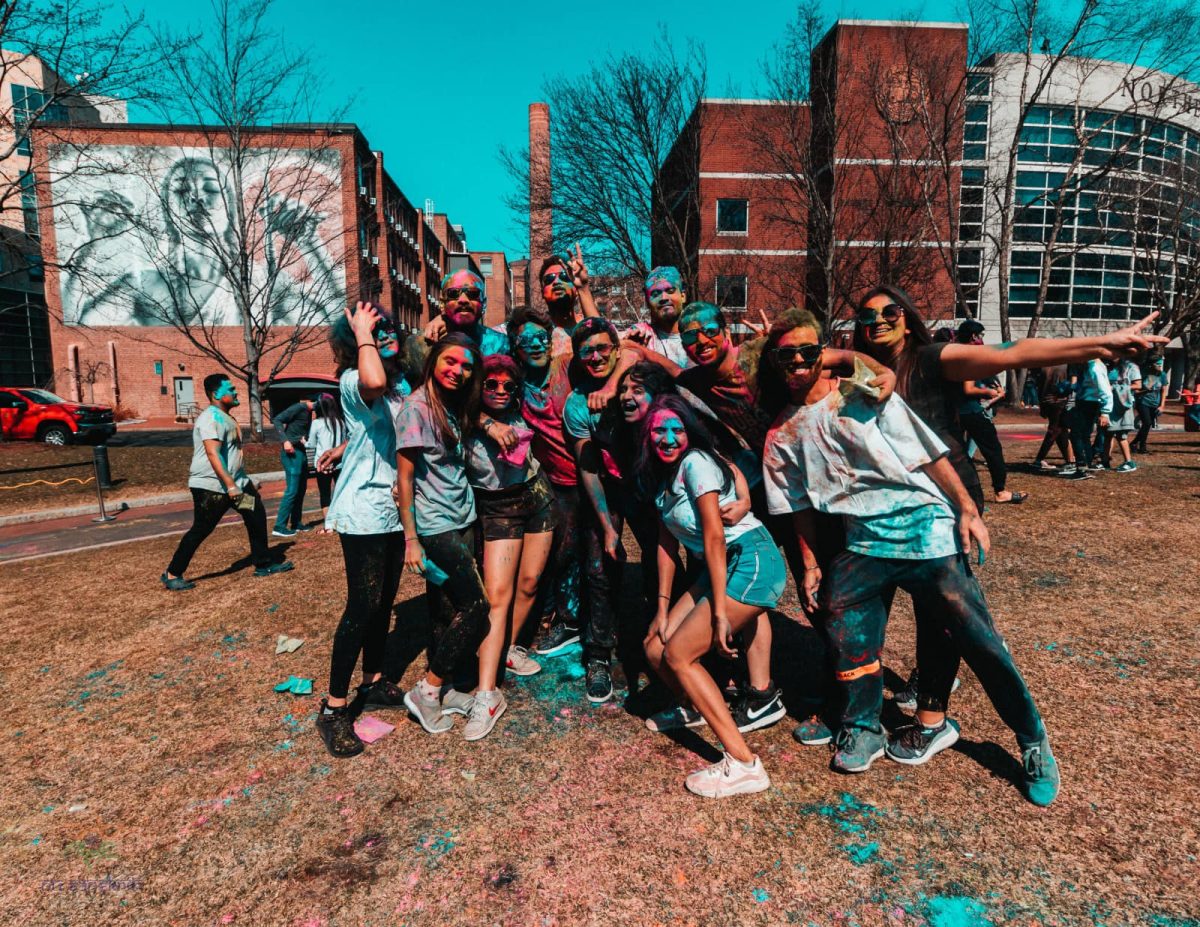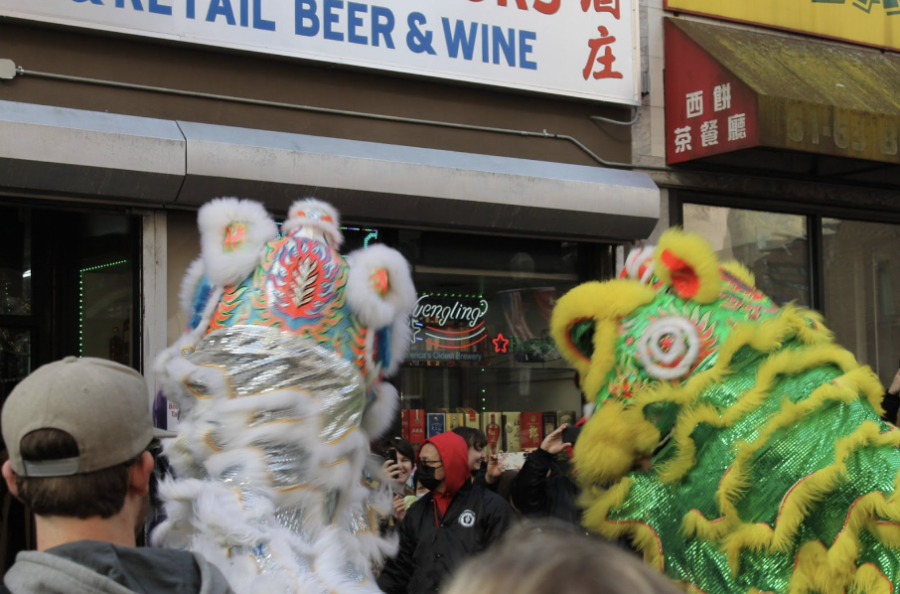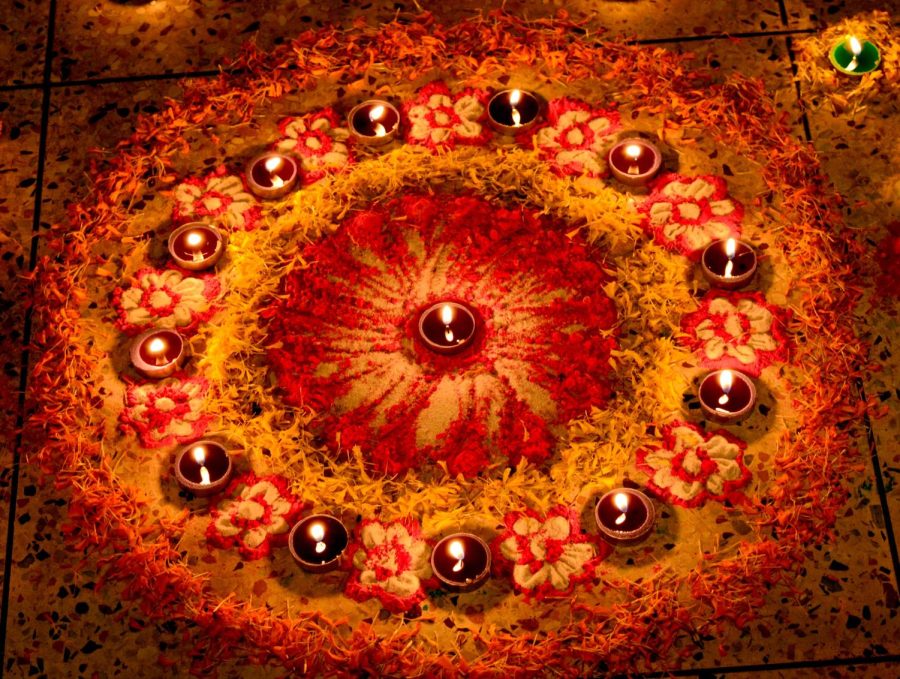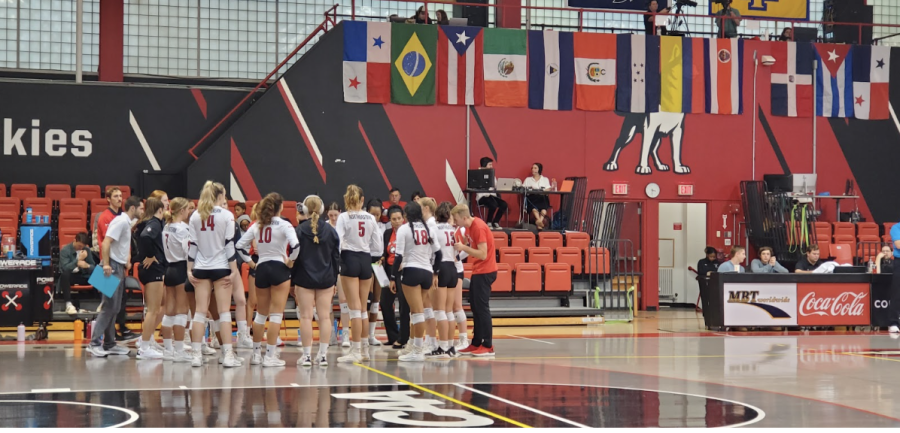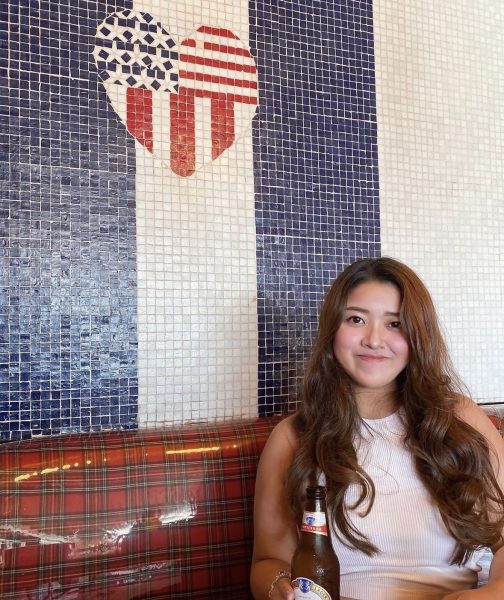The Japan Festival Boston 2025, held at Boston Common on April 26 and 27, brought together thousands of people to celebrate Japanese culture, despite a challenging weather forecast. Heavy rain on the first day didn’t dampen spirits, with the festival continuing on April 27 under slightly improved conditions. Aran Mahar, the PR and Social Media Manager for the festival, expressed optimism that this year’s attendance will match last year’s record-breaking turnout of over 90,000 visitors, as attendees still flocked to the event despite the wet conditions.
As the PR and Social Media Manager for the festival, Aran Mahar highlights the dedication required to put on such a large event. “Last year, we [had] a team of over 100 core volunteers, everyone running around in the pink shirts, and then we [had] over 400 other volunteers that help, just on the data,” Mahar said. The festival, which is entirely organized by volunteers, relies heavily on community support. Volunteers work tirelessly for months, planning, organizing crowdfunding campaigns, and securing sponsors.
Koji Hellman, a volunteer at the festival, shared his motivation for getting involved. “Back home in Seattle, in the summer, there’s a similar event called Japan Fair that my mom used to run an emcee for, and I always really admired the volunteers that ran that event, so I wanted to do something similar here,” Hellman said. As a bilingual volunteer, Hellman enjoys assisting a diverse range of festival-goers. “I think being able to speak in Japanese and English to help the different types of people coming to the event, and being able to utilize being kind of bilingual is really rewarding for me,” he added.
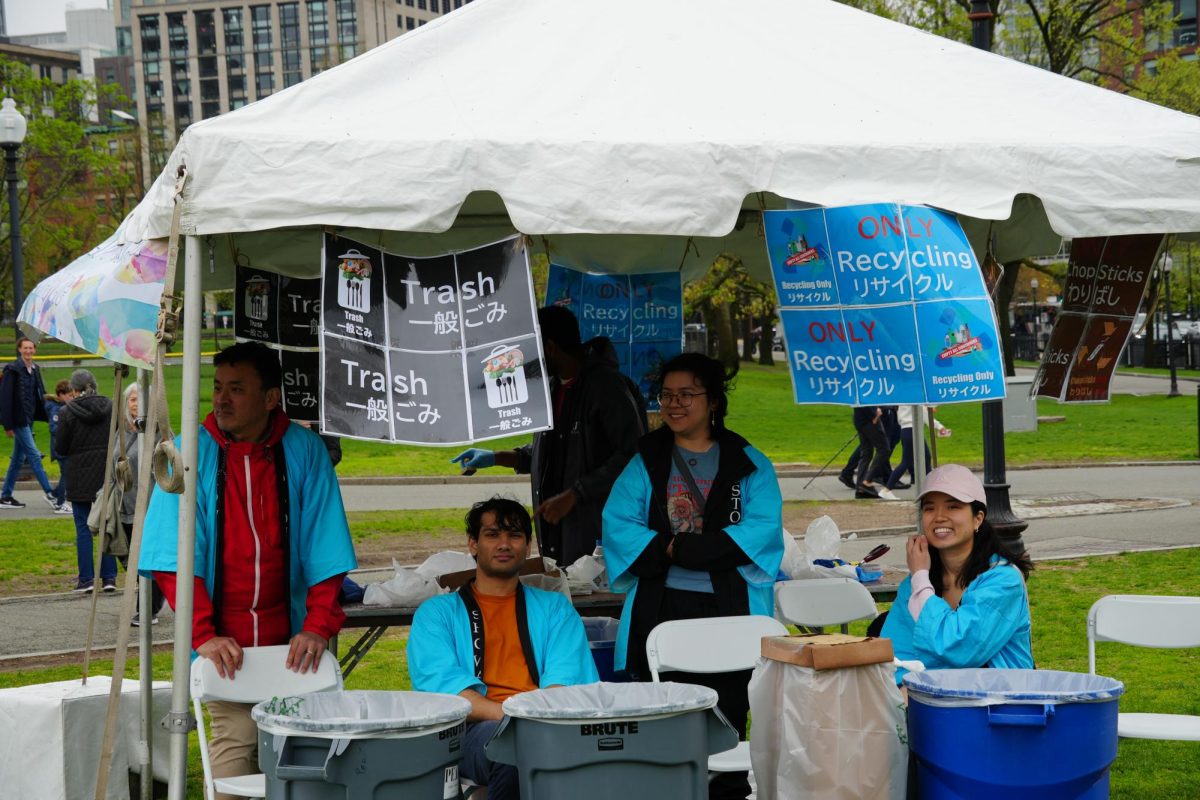
This year’s festival theme focused on sustainability, an initiative spearheaded by a newly formed team dedicated to environmental efforts. Mahar shared, “We created a whole team just for sustainability this year. It’s massive, one of our biggest teams, and we’re really happy they’ve done so many projects. So we have special recycling boots where you can recycle and trash, and also chopstick recycling. And then we have a company who’s going to recycle those chopsticks into hardwood products, cutting boards and coasters and things.”
The festival also emphasized the importance of sustainable clothing with a booth teaching attendees how to wear yukata, a traditional Japanese garment that can be passed down through generations. Mahar added, “Yukata is one of Japan’s original sustainable clothing that you can wear for generations and generations, and no matter whatever your height is, you can adjust it. We’re teaching how to wrap Furoshiki, which is also instead of buying a bunch of different bags, you get one cloth, and you can tie it however you want.”
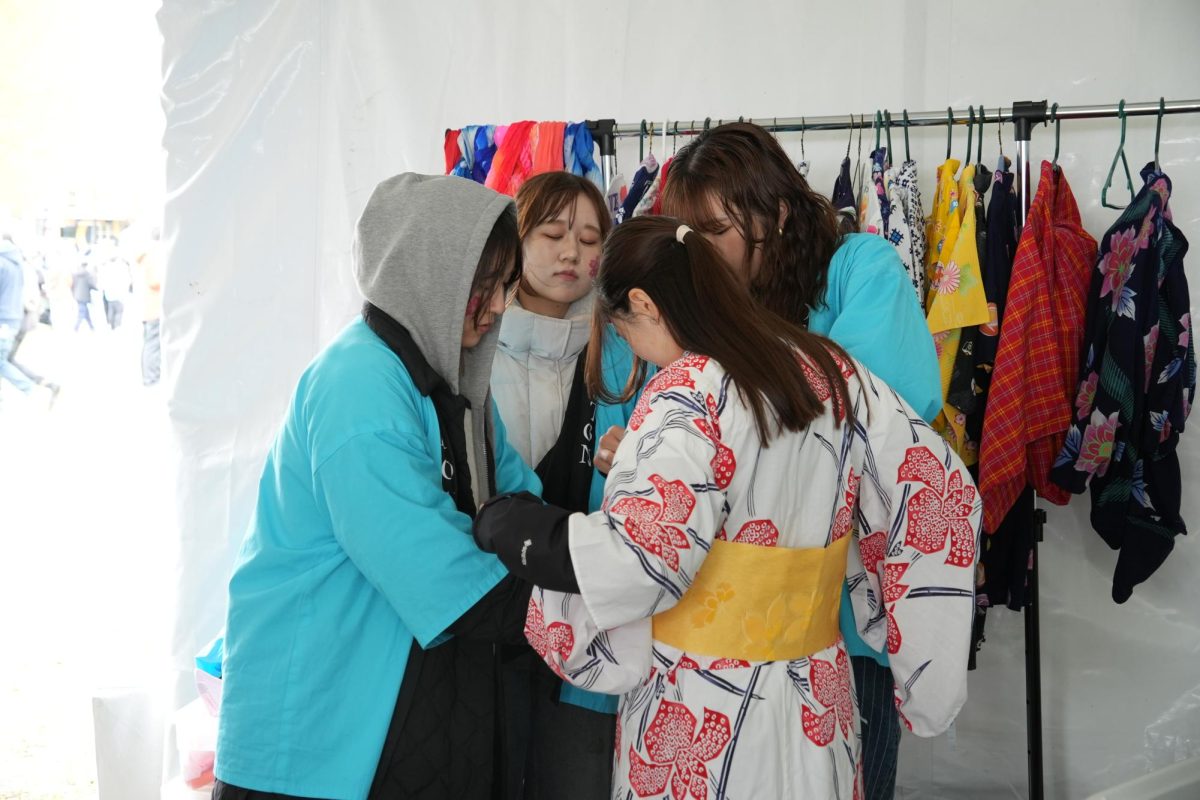
Another notable sustainability effort is the partnership with Open Water, which provides aluminum water bottles in place of plastic, promoting a more recyclable alternative. “Aluminum is one of the most recyclable materials, so it’s more sustainable,” Mahar explained. “We’re tracking how much we recycle all these things to have a really concrete, measurable impact. Instead of just saying we care about the environment, we’re trying to teach people how to make seed bombs to grow wild flowers, instead of non-native species. We take up this space here on the earth, and we want to make sure that we can keep doing that.”
The festival showcases a balanced mix of traditional and modern Japanese culture. Mahar emphasized the importance of maintaining the event’s authentic identity while appealing to a diverse audience. “We discuss what matsuri (festivals) mean to us and what elements are essential to represent Japanese culture,” she said. The festival offers workshops and performances that reflect the heart of Japan, such as Gagaku, a traditional court music performance, and a wide range of vendors from Japan.
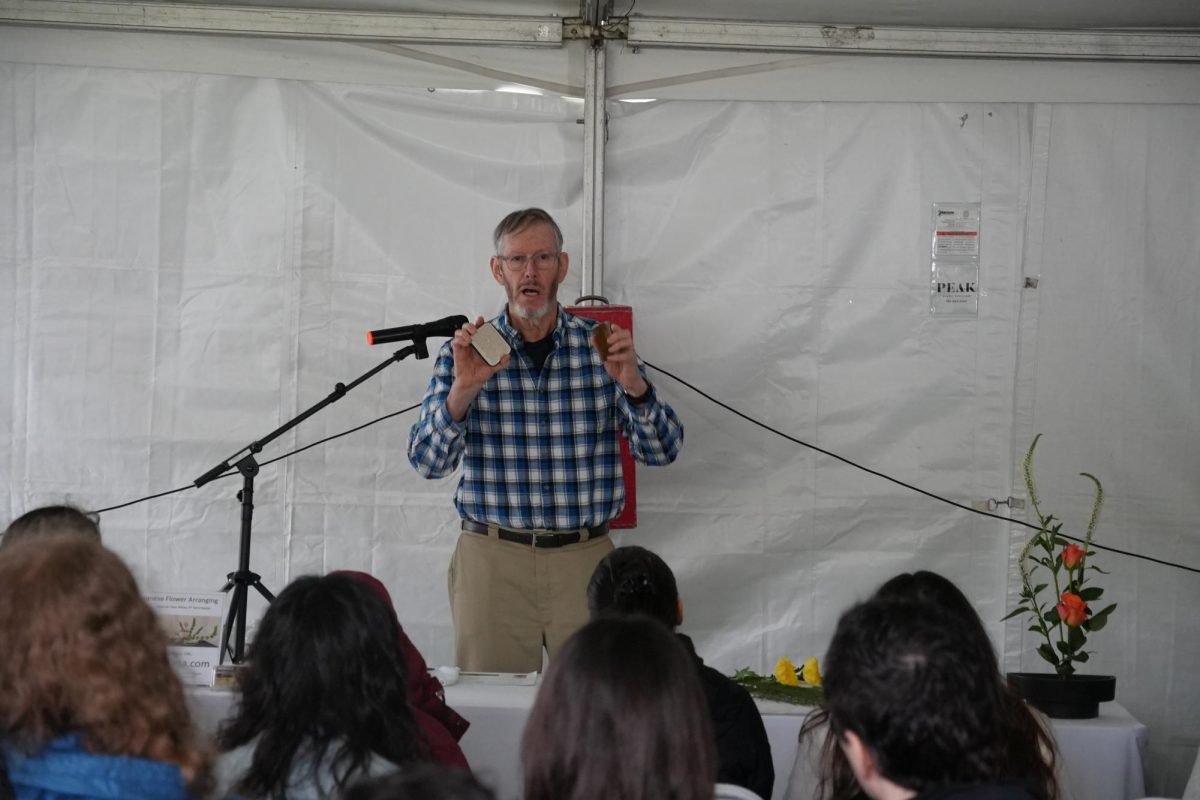
This year, attendees could participate in a variety of cultural workshops, including Sado (Japanese Tea Ceremony), Ikebana (Japanese Flower Arranging), Noh (Japanese Traditional Theater), JAL Origami Plane Making, Gyotaku (Japanese Fish Printing), Shodo (Japanese Calligraphy), Karuta (Japanese Poetry Card Game), and Shogi (Japanese Chess), among others. The Ikebana workshop, led by David P. Wilsey, introduced participants to the art of Japanese flower arrangement, focusing on the beauty and harmony of individual flowers. “Ikebana focuses more attention on the individual flower, and it tries to enhance and bring out the beauty of the flower, or the branch that you’re arranging with,” Wilsey explained. He hopes that participants will “understand a little bit more about the beauty of flowers” and develop an appreciation for nature.
In addition to the cultural workshops, the festival also hosted an exciting range of stage performances, including the Cosplay Fashion Show and Cosplay Death Match. Lasey, the leader of the cosplay and dance idol group Parfait Soleil, shared her excitement about performing on the main stage for the first time. “It means so much. I never expected that our group would be able to represent this part of Japanese culture at a festival like this,” Lasey said. “But I’m so happy that we got invited to do this, and it means a lot. It really does.” Parfait Soleil, which first performed at the festival in 2024 at the gazebo, enjoyed the energy of the main stage audience. “The crowd was amazing,” Lasey added, reflecting on the performance’s success. The group, which met through Instagram, is also preparing for an upcoming performance at Anime Boston in May 2025.
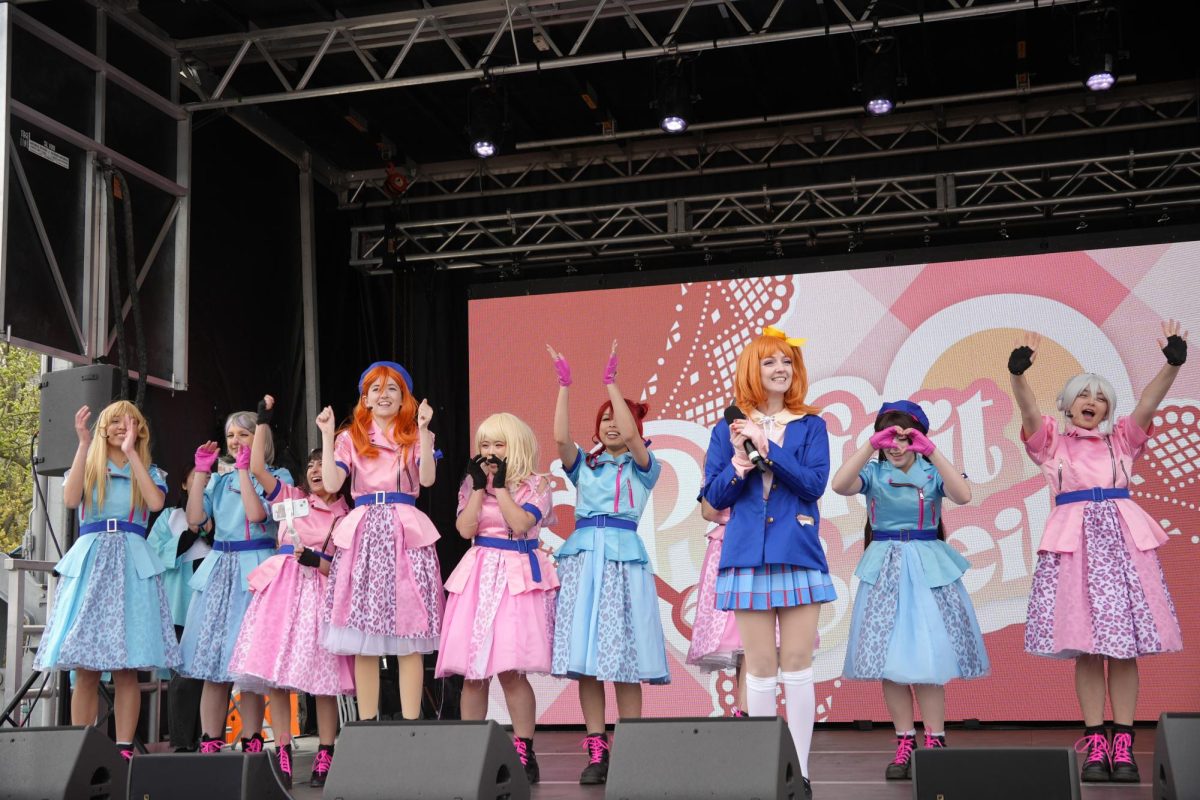
Nicholas Diaz, a cosplayer who participated in the festival’s Cosplay Fashion Show and Cosplay Death Match, shared his personal inspiration. “I had one professor in college days who is from Japan, who made a really big impact in my life,” Diaz explained. “He helped me see the world in a much better life than I originally thought. So I guess I just did this all for him.”
Diaz’s connection to anime and cosplay runs deep. His favorite characters, Gojo and Marin from Sono Bisque Doll wa Koi wo Suru, are a reminder of a supportive childhood friend who helped him through tough times. “Just seeing Marin do that for Gojo just reminded me so much of her,” Diaz reflected. “And that’s what I think I just can connect to the characters from my own experience.” Diaz enjoys participating in cosplay events not only for the fun of it but for the sense of community. “Just seeing all the love I got from my cosplay, and just seeing all the love everyone here gives each other, I think that just goes a long way,” he said. “The most important part of why I cosplay is just I get to be me, be the real me and not just be some other version of me.”
A key component of the Japan Festival Boston is its educational booths, offering festival-goers a deeper understanding of Japan’s rich culture and history. One such booth, organized by the Japan Society of Boston, focused on the special sister-state relationship between Massachusetts and Hokkaido, Japan, which marks its 35th anniversary this year. Emily Farrow Finch, Secretary of the Massachusetts Hokkaido Association, explained, “In the Boston area, there’s a number of organizations related to Japan American exchange, and it’s just great to let people know that we have this one too, and more importantly, that we have a sister state relationship with Hokkaido.”
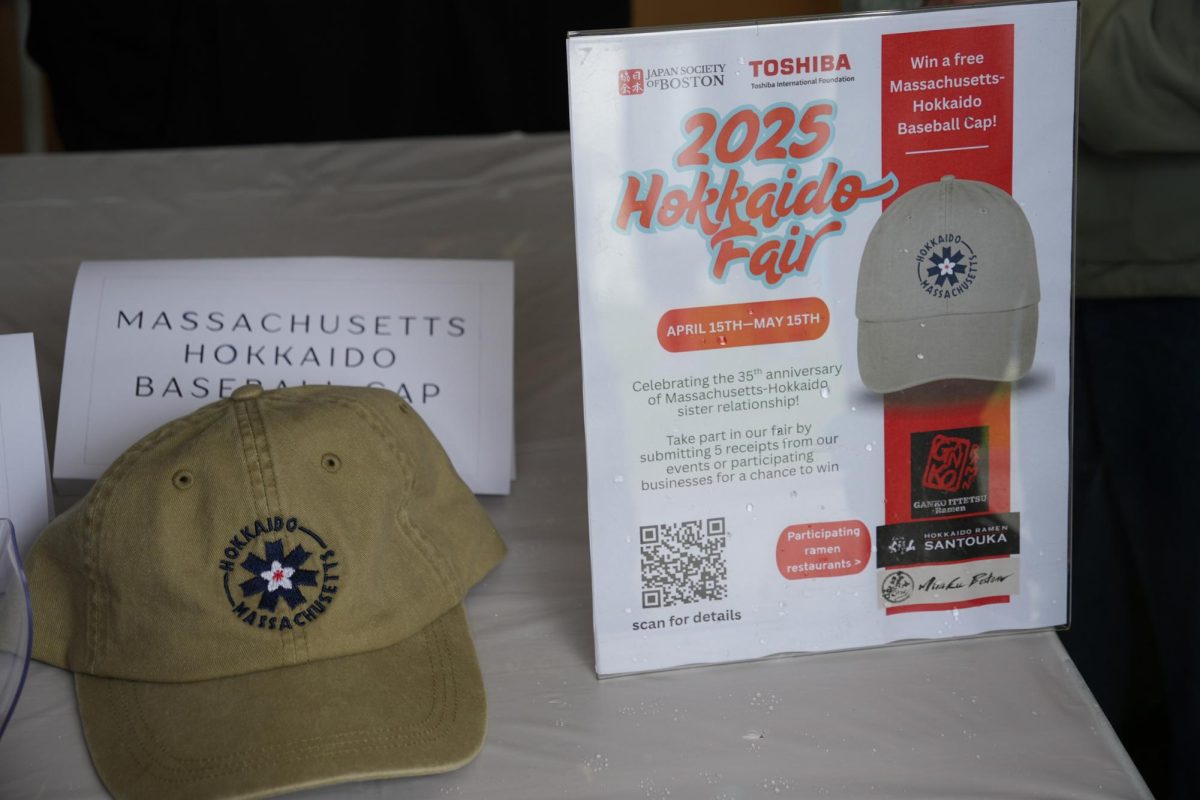
Hellman, who also designed the 35th Anniversary baseball cap, shared his hope for the baseball cap he designed to represent this special relationship. “I just hope it helps people think about that relationship. I think a lot of Americans don’t think of Hokkaido when they think of Japanese culture, they usually think of maybe Tokyo or Kyoto,” Hellman said. “So I think it’s good that Massachusetts and Hokkaido have that relationship so more people can learn about the culture of Hokkaido.”
Kiyoko Morita, President of the Massachusetts Hokkaido Association, shared how the booth offered a wealth of information about Hokkaido, including brochures and goods from the Hokkaido government. “Many ways, I think Hokkaido and Massachusetts are very similar. Huge land, nature is really well preserved, and it really is a beautiful place. It’s just beautiful land.” Morita said. The booth aimed to educate festival-goers about the unique aspects of Hokkaido’s culture and historical ties to Massachusetts.
Mahar pointed out that one of the most rewarding aspects of the festival is its ability to reach a wide audience. “A large portion of our attendees are people who have never been exposed to Japanese culture,” she said. Kyra Land, a first-time attendee, expressed her love for the kimono she wore to the event. “I always like the style. It’s very cute. It’s very modest. I like it,” she said. “The food, the food.” Like many festival-goers, she hopes to return next year to experience even more of what the festival offers.
Xiumeng Dong and Siying Lu, who attended the festival to explore more of Japanese culture, shared their love for the food and the chance to experience different aspects of the culture. Lu shared, “I like the Curry bun. It’s not really common thing we can buy [from] other places. And also I really like they are selling some Japanese local agricultural products.” Dong added, “I’ve liked Japanese culture since childhood, so I would say it is my passion.”
“The best part is seeing people walk away with a deeper appreciation for Japan,” Mahar added. “Many attendees may not have known what Gagaku was before, but now they leave with a newfound knowledge of Japanese culture, thanks to the authentic experiences we offer.”
The Japan Festival Boston continues to grow each year, with future plans to expand its outreach and strengthen cultural ties between Boston and Japan. “We’ve started a Japan team, specifically for the festival, to build stronger connections with Japan,” Mahar shared. “We want to involve people from Japan in the festival’s planning and deepen the relationship between our two cultures.”
With its diverse range of programming and a focus on sustainability, the Japan Festival Boston 2025 demonstrated the power of cultural exchange, combining tradition, pop culture and sustainability. The Japan Festival Boston is more than just an event—it’s a bridge connecting communities, fostering understanding, and ensuring that Japanese culture continues to thrive for generations to come.

